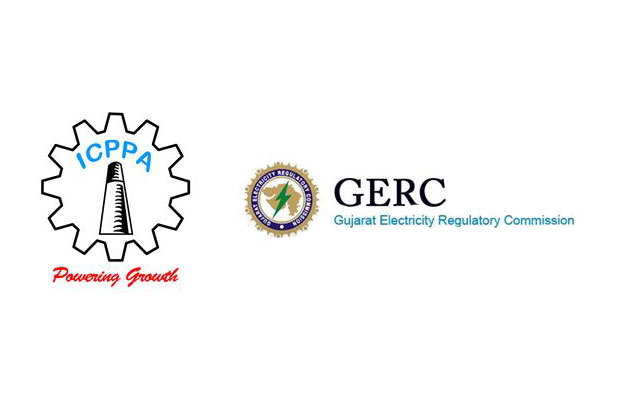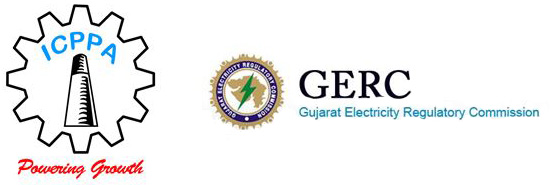

The Indian Captive Power Producer’s Association, which had filed a complaint at APTEL (Appelate Tribunal for Electricity) against the stat regulator in Gujarat, earned a moral victory with the APTEL bench agreeing with them. Their key contention? That the Gujarat power regulator or Gujarat Electricity Regulatory Commission (GERC) had been amiss in its failure to amend or change the state’s open access regulations since 2014. Not just that, it had resorted to delaying tactics on repeated pleas to do so by open access users, causing undue losses and hardships to the firms involved. As on date, a plaint filed by the association first in October 2015 with the GERC has still not reached a conclusion.
The GERC, in its defence, had employed the three pronged tactic. One , it claimed that it was under no obligation to follow the norms of the changes made by the CERC (Central Electricity Regulatory Commission) and other state commissions from time to time. Two, that one of the key changes sought by the producers, involving set off of Long Term Access charges with Medium term access charges was already a matter being heard at the Supreme Court, due to a special leave petition filed by a producer firm, and finally, that contrary to the claims of the appellant, the issue before the Supreme Court has a bearing on multiple issues related to it, making a decision by GERC in the meantime fraught with ‘risk’. The power producers group had in fact listed a list of 21 amendments where GERC needed to act to align the state’s open market access policies with the market realities of the power market.
APTEL’s order effectively rejected each of the GERC arguments, urging the commission to set aside its last order on the issue that had deferred hearing yet again, and starting the process to consult with, and arrive at relevant amendments as soon as possible.
Interestingly, Section 66 of the Electricity Act, 2003 casts a mandate upon all the state the commissions to take steps towards development of market. The open access plays a vital role in promoting competition and in market development. Further, open access is a dynamic regime which has to be improvised and developed keeping in mind the existing market conditions.
The argument of being under no obligation to follow CERC guidelines was also discarded with the following view. As per Section 61(a) of the Act, the principles adopted by the Central Commission are a reference/ guiding factor for the State Commissions. Pertinently, while the Central Commission as well as other State Commissions have reformed/ modified their open access regulations with changing times, starting from the year 2010, however, GERC has not made any significant change to its open access regulations, since the year 2011 except some minor changes regarding Short Term Open Access and its tariff calculation methodology through amendment 1 and amendment 2 in the year 2014.
On the contention of the matter being before the Supreme Court, APTEL ruled that “A petition seeking amendment of a regulation does not mean that the existing regulation is erroneous, or there is some error. Even if the aforesaid Civil Appeal is rejected by the Hon’ble Supreme Court, the Commission can always choose to amend its regulations, by exercising its legislative powers available under Section 181 of the Act, prospectively.”
“Central Commission, as well as various State Commissions such as Rajasthan, Punjab, West Bengal, Andhra Pradesh, Bihar, Delhi U.P., Maharashtra etc. have brought in amendments to their Open Access Regulations, in order to align them with the dynamic nature of the Open Access Market.. Further, it may also be pointed out that open access charges are part of overall tariff stream of the Transmission and Distribution Licensees, and accordingly the principles of Section 61 of the Act, including adherence to commercial principles as envisaged under Section 61 (b), have to be complied with, and for the said purpose, Commissions are required to carry out regular amendments. “
The APTEL order is a stark reminder of the fact that even in the best of states in India, regulatory issues remain a landmine, tripping up one set of producers or the other. Gujarat, which has been earning plaudits for its profitable discoms and highest share in residential rooftop solar, has been inexplicably slow when it comes to progress on open access. The state has also been responsible for some of the highest delays on utility scale projects, both solar and wind, due to issues with land allotment, leaving even agencies like SECI and NTPC wringing their hands in frustration. In fact, when it comes to the open access market, the state ranks well behind counterparts like Karnataka, and Maharashtra in providing a supportive environment. The ban on sourcing electricity from outside the state remains a major roadblock.
For the Indian Captive Power Producers Association, having their stand vindicated at APTEL will translate to real progress only if GERC actually moves to address their issues on priority. Considering the track record with the plea so far, where fresh dates and deferments have been the rule, it will take a mini-miracle for that to happen. The association, whose members are a veritable who’s who of the top industrial investors operating out of Gujarat, it will be important to ensure the united front continues for follow up action now.
The APTEL bench was headed by Justice Manjula Chellur (Chairperson) and S.D. Dubey, (Technical Member)



























